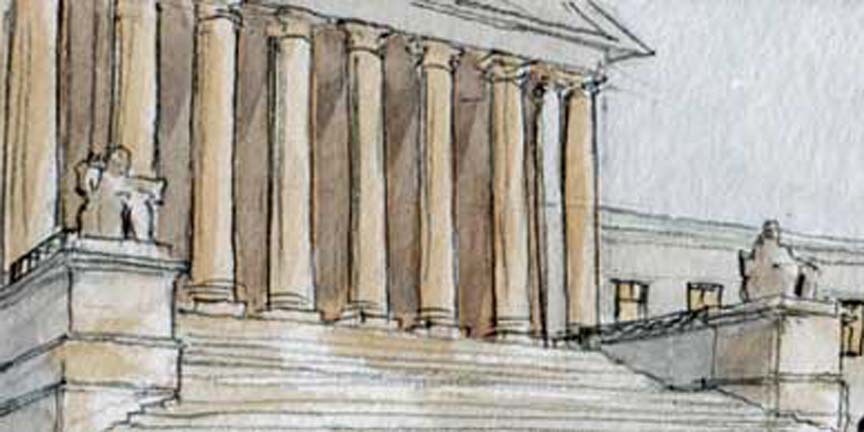Thursday round-up

Court-watchers continue to focus on June Medical Services v. Russo, a high-profile abortion case to be argued on March 4. At Vox, Anna North writes that a visit to “Hope Medical Group for Women, one of the last abortion clinics in Louisiana,” the state whose admitting-privileges requirement for abortion providers is at issue in the case, “is a reminder that in many parts of the country, all that stands between pregnant people and the end of Roe v. Wade is a handful of clinics — most of them small, isolated, and racing to keep up with an increasing number of restrictions that, staff say, have nothing to do with patient care.” At Quartz, Ephrat Livni discusses the debate over precedent joined by “friends of the court” on both sides of the case.
Briefly:
- Jordan Rubin reports at Bloomberg Law that “[w]hen he argues this spring at the U.S. Supreme Court [in McGirt v. Oklahoma] that Oklahoma couldn’t prosecute an American Indian for rape committed on Indian land, former acting U.S. solicitor general Ian Gershengorn will have widespread backing from Indian interests by way of the Tribal Supreme Court Project.”
- At The Hollywood Reporter (via How Appealing), Eriq Gardner reports that “[o]n Wednesday, all but one member of the Motion Picture Association filed arguments in support of Oracle, the tech giant aiming to punish Google for allegedly infringing computer code to build the Android operating system that’s currently used on more than 2.5 billion mobile devices.” [Disclosure: Goldstein & Russell, P.C., whose attorneys contribute to this blog in various capacities, is among the counsel to the petitioner in Google v. Oracle America.]
- In an op-ed at The Regulatory Review, Richard Revesz argues that the solicitor general’s arguments in Seila Law v. Consumer Financial Protection Bureau, a constitutional challenge to the structure of the CFPB, “call into question the constitutionality of multi-member agencies because the dividing line that he urges the Supreme Court to accept rests on illusory distinctions.”
We rely on our readers to send us links for our round-up. If you have or know of a recent (published in the last two or three days) article, post, podcast or op-ed relating to the Supreme Court that you’d like us to consider for inclusion in the round-up, please send it to roundup [at] scotusblog.com. Thank you!
Posted in Newsletters